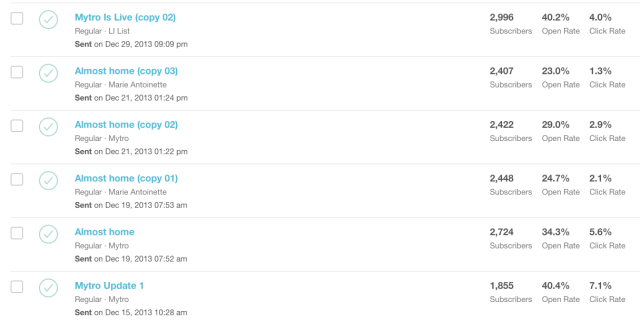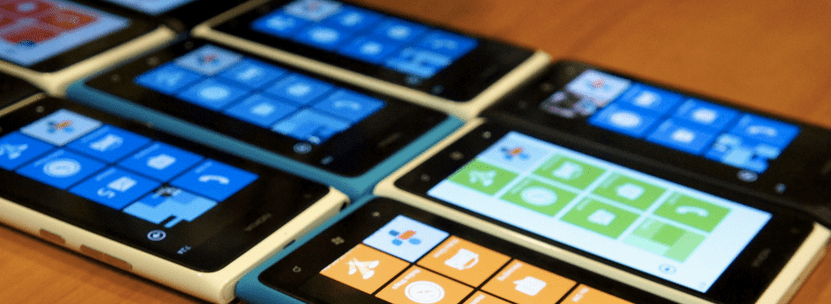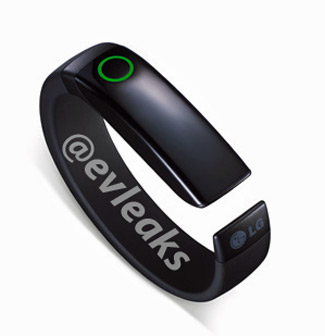
A site called SnapchatDB.info claims that they’ve saved usernames and phone numbers for 4.6 million accounts and made the information available for download. SnapchatDB says that it got the information through a recently identified and patched Snapchat exploit and that it is making the data available in an effort to convince the messaging app to beef up its security. We’ve reached out to Snapchat and SnapchatDB for comment.
SnapchatDB said it “censored the last two digits of the phone numbers” in order to “minimize spam and abuse,” but that it still might release the unfiltered data, including millions of phone numbers.
The Next Web did a WHOIS lookup on SnapchatDB’s domain and found it was created just yesterday on December 31. The registrant’s name is protected, but its mailing address and contact number are both listed in Panama.
The site appears to have been created in response to recently identified flaws in Snapchat’s security. Last week, ZDNet published an article on how white-hat Gibson Security researchers had tried to alert Snapchat to ways that hackers would connect usernames to phone numbers for user in stalking, but were ignored. Gibson Security then published the exploit publicly on Christmas Eve.
The firm said that hackers could use two exploits to gain access to users’ personal data, including their real names, usernames and phone numbers, through Snapchat’s Android and iOS API. Snapchat did offer a public statement, but as TechCrunch’s Josh Constine wrote, it wasn’t very satisfactory because it did not offer details on how its countermeasures would work, such as rate limiting, bad IP blocking, or automated systems that scan suspicious activity. Snapchat said:
“Theoretically, if someone were able to upload a huge set of phone numbers, like every number in an area code, or every possible number in the U.S., they could create a database of the results and match usernames to phone numbers that way. Over the past year we’ve implemented various safeguards to make it more difficult to do.”
To be sure, SnapchatDB might be a prank meant to call attention to these issues. On Hacker News, several people have had trouble downloading the data files (I just got an error message for both of them, but that may be because of high traffic). Some commenters who did manage to get ahold of the files said they couldn’t find their own numbers in the lists and entire area codes appeared to be missing.
Either way, the Gibson Security report and SnapchatDB are both reminders that even in an ephemeral messaging service, it would be a mistake to be lulled into a sense of security about the information that you do have stored with the app. “People tend to use the same username around the web so you can use this information to find phone number information associated with Facebook and Twitter accounts, or simply to figure out the phone numbers of people you wish to get in touch with,” SnapchatDB stated on the site.
from TechCrunch http://feedproxy.google.com/~r/Techcrunch/~3/99cub5pdBbc/
 Last week security researchers published a way to skim Snapchat's full database, and it appears someone did it before the vulnerability was addressed. A website called SnapchatDB! has appeared posting SQL/CSV files that it claims contain the username ...
Last week security researchers published a way to skim Snapchat's full database, and it appears someone did it before the vulnerability was addressed. A website called SnapchatDB! has appeared posting SQL/CSV files that it claims contain the username ... Samsung couldn't wait for CES to start leaking information about its new HDTVs, starting with the remote. After rolling out larger and larger contraptions over the years with more buttons (on both sides, even), this year's "Smart Control" model is 80 ...
Samsung couldn't wait for CES to start leaking information about its new HDTVs, starting with the remote. After rolling out larger and larger contraptions over the years with more buttons (on both sides, even), this year's "Smart Control" model is 80 ... Netflix likes to run small tests of features and packages before it offers them widely (like its new unified UI), and that includes the "1 SD stream for $6.99" some have started seeing recently. Another offer currently in testing covers the hole ...
Netflix likes to run small tests of features and packages before it offers them widely (like its new unified UI), and that includes the "1 SD stream for $6.99" some have started seeing recently. Another offer currently in testing covers the hole ... You might say the day is never really done in consumer technology news. Your workday, however, hopefully draws to a close at some point. This is the Daily Roundup on Engadget, a quick peek back at the top headlines for the past 24 hours -- all ...
You might say the day is never really done in consumer technology news. Your workday, however, hopefully draws to a close at some point. This is the Daily Roundup on Engadget, a quick peek back at the top headlines for the past 24 hours -- all ... Now that Dell is once again a private company, it's trying to shake off its reputation as a member of the status quo. Appropriately, the PC builder just unveiled a new TV ad (after the break) that suggests it has all the energy and vision of a ...
Now that Dell is once again a private company, it's trying to shake off its reputation as a member of the status quo. Appropriately, the PC builder just unveiled a new TV ad (after the break) that suggests it has all the energy and vision of a ...


 As the legions of cord cutters continue to grow, companies are looking for any way to keep customers tied to their increasingly archaic (and offensively priced) pay TV subscriptions. ABC is just the latest network to get in on the frustrating ...
As the legions of cord cutters continue to grow, companies are looking for any way to keep customers tied to their increasingly archaic (and offensively priced) pay TV subscriptions. ABC is just the latest network to get in on the frustrating ...
 We can't blame you if you haven't heard of Google's Schemer; the goal sharing service launched at the end of 2011, but it hasn't received much publicity (or traffic) since. Accordingly, the crew in Mountain View may be close to shutting Schemer down. ...
We can't blame you if you haven't heard of Google's Schemer; the goal sharing service launched at the end of 2011, but it hasn't received much publicity (or traffic) since. Accordingly, the crew in Mountain View may be close to shutting Schemer down. ... Japan, you'll get the PlayStation 4 soon. Promise. For now, look at everyone else enjoying it. Don't they look happy? That could be you on February 22nd! ...
Japan, you'll get the PlayStation 4 soon. Promise. For now, look at everyone else enjoying it. Don't they look happy? That could be you on February 22nd! ... Deep down, we'd all like to believe our text-based interactions are worthy of Calvin & Hobbes-style witticisms. They're not and you know it, but does Google? No matter, because the tech giant was just awarded a patent to format your virtual ...
Deep down, we'd all like to believe our text-based interactions are worthy of Calvin & Hobbes-style witticisms. They're not and you know it, but does Google? No matter, because the tech giant was just awarded a patent to format your virtual ... Though Sony's crazy QX10 and QX100 lens cameras can attach to most smartphones, the company naturally favored its own Xperia Z and Z1 handsets by creating custom cases for those devices. Now it's doing the same for its crazy-large 6.4-inch Xperia ...
Though Sony's crazy QX10 and QX100 lens cameras can attach to most smartphones, the company naturally favored its own Xperia Z and Z1 handsets by creating custom cases for those devices. Now it's doing the same for its crazy-large 6.4-inch Xperia ...
